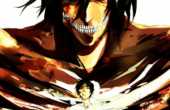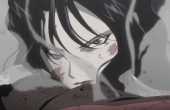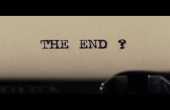Dominic Sceski
Dominic Sceski is an aspiring author in love with the Creator of the world and the creation of his own worlds through stories--in that order!
Contributor II
- Plebian Penman
- Lurker
- Pssst
- Hand Raiser
- Sharp-Eyed Citizen
- Town Watch
- ?
- Articles
3 - Featured
2 - Comments
35
- Ext. Comments
25 - Processed
10 - Revisions
10
- Topics
6 - Topics Taken
1 - Notes
14
- Topics Proc.
47 - Topics Rev.
8 - Tides
2
- Tides Proc.
15 - Tides Rev.
6 - Tide Comments
1
- Points
1009 - Rank
129 - Score
566
Latest Articles
Latest Topics
The Laws of Magic According to Brandon SandersonAnalyse Brandon Sanderson's laws of magic and talk about their growing popularity among modern fantasy literature. Contrast his laws of magic with other stories that feature magic (Harry Potter, LOTR, the Inheritance Cycle) and consider the pros and cons of having a "hard" or "soft" system of magic. |
The Witcher: A Book Series to a Video GameAnalyze the key factors that enabled The Witcher, a fantasy novel written by a Polish author, to become a hit video game that is clearly the work of great art, talent, and money. Why did the Witcher become a video game and not a movie? What about the story makes it intriguing enough to become a game?
|
Does Blogging Really Help Promote Self-Publishers?Analyze whether or not blogging is truly effective in the endeavors of self-published authors to promote their books. Does blogging actually help, or are self-publishers just wasting their time? Is it possible to stand out in the blogging world when so many people blog?
|
Pending | The Effect the "Witch Hunt" for Actors with Histories of Sexual Harassment Has on FilmAnalyze the degree to which movements like #MeToo and the hunt for actors that have sexually harassed women has on film, both in reality and speculatively.
|
Comics, Movies, Literature, Fiction: What is the Most Influential Type of Art?Which type of art has proven to be the most influential when it comes to impacting society? "Influential" means that the form of art inspires not just the individual to think in a certain, new way, but all of society is swayed to change for the better, as encouraged by the form of art. The common people is often influenced or empowered by whatever they've been reading or watching to initiate change in society. Comics were largely influential in the 1900s, movies (especially from Marvel) are widely popular now, and works of literature and fiction still reside as one of the top forms of art used to influence the people of society. Which, if any, of the art forms listed is the best way to positively impact the world? Why?
|
Self Publishing: What is the Best Way to Advertise Your Book(Note: I am very interested in seeing this topic become an article. Being a self published author who struggles to advertise my books successfully, I'm in need of a few fresh ideas, both ideas presented by the article itself and by the comments that will follow. Thanks so much to whomever writes this!) In today's world, many people aspire to become full-fledged authors. However, agents and publishing companies can only take on so many clients. Thus, many people resort to self publishing, meaning that every work they produce must be advertised by themselves. There are many ways to advertise a book, both on the internet and off, but where do self published authors find the best venues to promote their books? What techniques could be employed by authors to draw attention and interest to their books? List techniques or venues on the internet and off, as well as how authors of fiction can promote their books in contrast to authors of non-fiction.
|
Anime on the RiseDoes anybody else feel like anime is slowly becoming more popular? What is it about anime that makes us so excited, so emotional, so drawn into the story and the lives of the characters? What are the ways that anime can make society a better place…and what are the ways people can take the lessons or ideals of anime and misinterpret them? It's an important question, especially since anime is on the rise. How will it affect us?
|
Latest Tides
∼∼∼∼∼∼∼∼∼∼∼∼ Tidearticle | anime "Korragraphy": Choreography Mistakes in The Legend of KorraThe Legend of Korra, created by Michael Dante DiMartino and Bryan Konietzko, is a spin-off of Avatar: The Last Airbender. The Legend of Korra initially aired on Nickelodeon, but by the third season, the show had become listed as an "online only show", due to its online popularity being so much greater than its popularity on television. The Legend of Korra, much like its "parent" show, contains lots of action, disputes between characters, and intriguing plot-twists. What is most noteworthy in The Legend of Korra, in comparison to Avatar: The Last Airbender, is the shift in the style of plot/scene-pacing as well as the style of combat that is enacted by the characters. This may be a heavily opinion-based post, but I personally find that, in regards to the action-scenes of The Legend of Korra, the "choreography" of the fight-scenes, as well as the order in which the fight-scenes take place, is poorly done in this show. Many epic fight-scenes happen too early in the series, or certain "moves" performed by the characters are done with such ease that the audience grows numb to acts of authentic skill. Thus, whenever a truly impressive "move" is pulled off in a fight-scene, the effect is lessened. Questions to be answered in this post:
|
∼∼∼∼∼∼∼∼∼∼∼∼ Tidearticle | anime Bleach: The Hollowfication QuestionIchigo Kurosaki from the anime Bleach gets thrown down a path of violence, death, and corruption. But it is a path he believes that he must take if he wants to protect his friends. The path he chooses though is a road littered with enemies. With each enemy seeming to be more powerful than the one preceding it, Ichigo continuously needs to become stronger. Each time he grows stronger, however, the source of his power becomes darker, and he soon realizes that his soul is partially possessed by an evil spirit—his inner Hollow. The presence of his inner Hollow burdens him, so much that he almost loses control of his body, and meanwhile, he is suddenly faced with an incredibly powerful foe. As a result, Ichigo doesn’t know what other method to turn to, other than by controlling and using his inner Hollow to boost his power. Is it logical for the hero of a story to use or join sides with evil in order to bring about a desired good. Or does this confuse society, and make the line between good and evil too blurry? And most importantly, is it moral to use an evil means to meet a just end?
|
Latest Comments
| Attack On Titan: Anger as a Source of Motivation | |
Wow! Thank you. I really appreciate it! | Fullmetal Alchemist Brotherhood: The Symbolic and Ironic Deaths of the Homunculi |
I don’t even read comics but you described all of this so perfectly I think I actually experienced the shock and confusion of Batman #50. Well done. The concept of “can heroes be happy?” is an intriguing one, and I think it merges nicely with the question of “do heroes need the violence just as much as the villains?” which is a question that comes up in Batman as well, specifically with the Joker. Thanks for this, happy weekend! | The Batman/Catwoman Wedding Is Supposed to Upset You |
I believe that society, or humanity as a whole, will always require stories that involve conflict. Without such literature to guide us, humanity would go astray. That being said, I think it is impossible for humanity NOT to create such works of literature, as each age and era will always produce authors that write about the struggles they have witnessed. | The Philosophy of Conflict in Literature |
I have no problem with the Me Too campaign and have no right to say anything against it, other than the fact that we live in a culture that glorifies victims, and this is not good. I have nothing else to add. | Censorship: Post-Weinstein, and the Impact of Social Media |
This relates to the article I’m writing quite nicely! Great take on this subject, it’s something I wonder about too. Being an AoT fan, I find myself wondering, “Was that even necessary?” It’s a good question to ask when it comes to violent anime, and you gave some pretty solid answers. Cheers! | Violence in Anime: Helpful or a Hindrance? |
Hey, maybe I’m just that good? :p Hmm, okay, thank you for the tip. I can see what you’re saying. I have a blog that I try to keep up with, so sometimes my articles here can sound a little “bloggy”. I’m glad you liked it! Thank you! | Fullmetal Alchemist Brotherhood: The Symbolic and Ironic Deaths of the Homunculi |
Absolutely, Arakawa is a genius. I have a confession to make: I used to be rather sexist when it came to story telling; I used to believe that male writers were better than female writers. I am happy to say that Arakawa completely changed my mind, especially since FMA is one of the greatest stories I have ever encountered. Cheers! | Fullmetal Alchemist Brotherhood: The Symbolic and Ironic Deaths of the Homunculi |



Thanks for taking the time to read and comment so thoughtfully. I think you’re absolutely right. There’s something impressive about the “averageness” of Eren, both in his abilities and his reactions to life around him. If he’s average, perhaps the question becomes, is he really the hero? Part of me feels like this is why he has changed, as of season 3. He understands that he’s not a hero and that it’s not all about him. His new humility is definitely encouraging and inspiring.
Cheers!